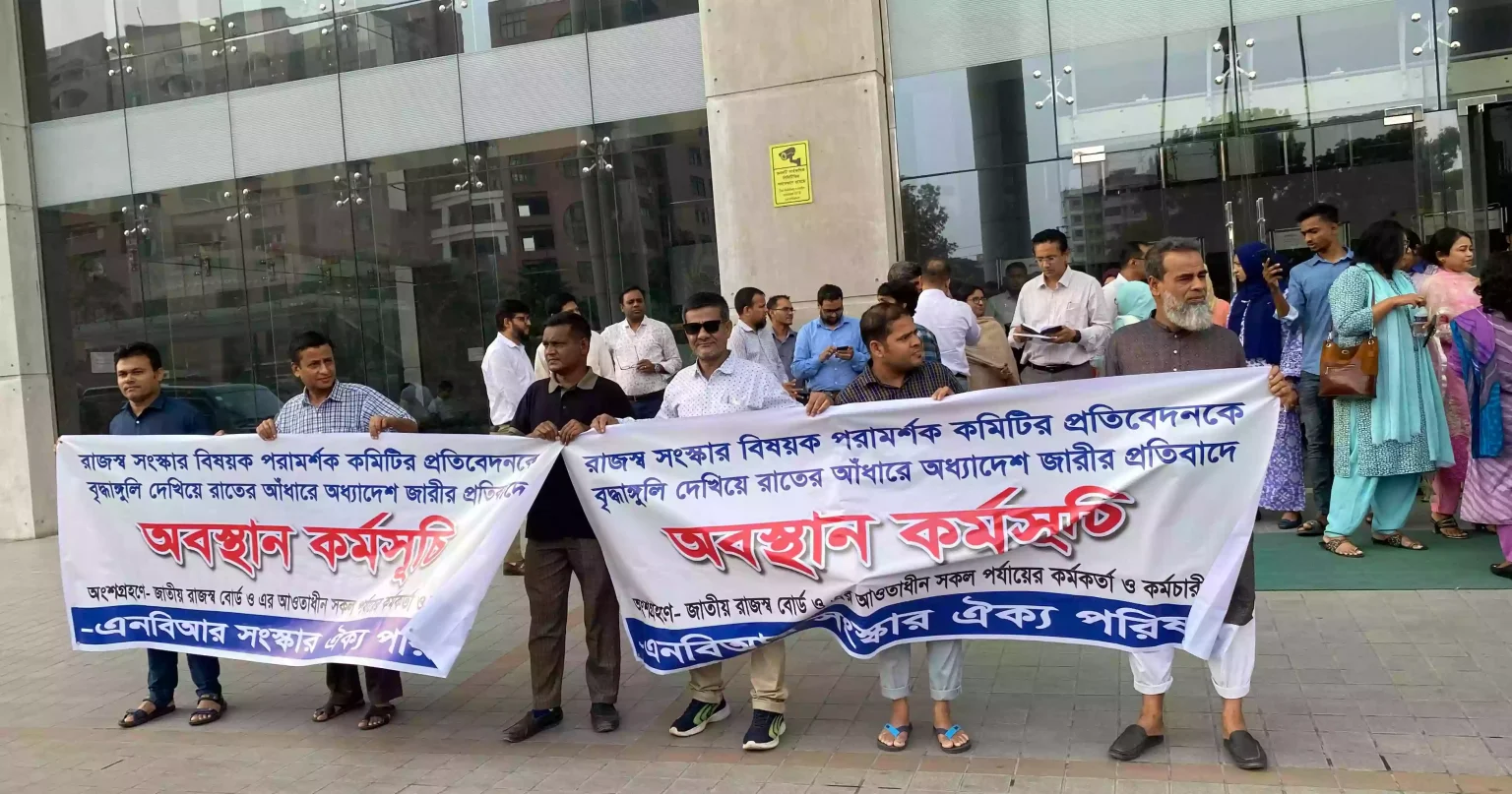Tensions within Bangladesh’s revenue administration are intensifying as the NBR Reform Unity Council initiates a series of protest actions, including indefinite non-cooperation with the National Board of Revenue (NBR) chairman beginning Wednesday.
The protests follow the government’s decision to dissolve the NBR through an ordinance issued on 12 May, a move that has attracted widespread criticism from tax officials and civil society representatives.
The Unity Council has outlined a phased protest strategy. The non-cooperation campaign commenced on 21 May. On 22 May, members plan to submit a memorandum to the Chief Adviser and stage sit-ins at NBR offices across the country, excluding those handling exports and international passenger services.
Full-scale work stoppages are scheduled for 24–25 May, with strikes at customs houses and LC stations running from 9 a.m. to 5 p.m. From 26 May onwards, an indefinite, comprehensive work stoppage will be enforced across all tax, customs, and VAT departments, again excluding international passenger operations.
In a statement delivered at the now-defunct NBR headquarters, the Unity Council reiterated its three key demands: immediate repeal of the ordinance, removal of the current NBR chairman, and public release of the Revenue Reform Advisory Committee’s recommendations.
Officials have accused the government of dismantling the NBR without engaging relevant stakeholders, triggering week-long protests across the customs, VAT, and income tax departments.
Civil servants argue that the decision was taken in secrecy, bypassing consultation with business associations, civil society, research institutions, and even NBR personnel—raising serious concerns about transparency and accountability.
Symbolic pen-down strikes were earlier observed on 14–15 May and 17–19 May. Protests were temporarily suspended on 20 May to accommodate a scheduled meeting with the Finance Adviser.
A 13-member delegation from the Unity Council attended the meeting, which included members of the advisory committee and senior officials, including the NBR chairman and the Finance Secretary. Delegates later expressed frustration, describing the session as heavily one-sided. Only two representatives were permitted to speak, each for less than seven minutes, and the Finance Adviser reportedly declined to allow extended discussions.
During the meeting, members of the Revenue Reform Advisory Committee clarified that the ordinance did not reflect their original recommendations, which had called for preserving the NBR while restructuring leadership roles internally. Nevertheless, the advisers present supported the ordinance.
Finance Adviser Salehuddin Ahmed later told the media that the ordinance would remain in effect as it served the interests of the business community and that the protests would not influence government policy. This stance, the Unity Council claims, left them feeling sidelined and misrepresented.
Protesting officials further allege that the NBR chairman misinformed policymakers by withholding critical insights about the internal workings of the revenue administration and failing to communicate the potential fallout of such a significant structural overhaul. They hold him directly accountable for the current crisis.
To better coordinate the movement, an ad hoc committee comprising representatives from all three revenue wings is being formed, with a list of participating senior officers (Grade-10 and above) expected to be published on Thursday.
This marks the most significant internal protest within the revenue administration in recent years. Analysts warn that sustained unrest could severely hamper tax collection, delay import-export clearances, and undermine overall economic governance—particularly concerning as Bangladesh approaches the end of its fiscal year.
The Unity Council has affirmed that the movement will persist until the ordinance is repealed and the NBR chairman is removed, framing their cause as a stand for institutional integrity and participatory reform.


